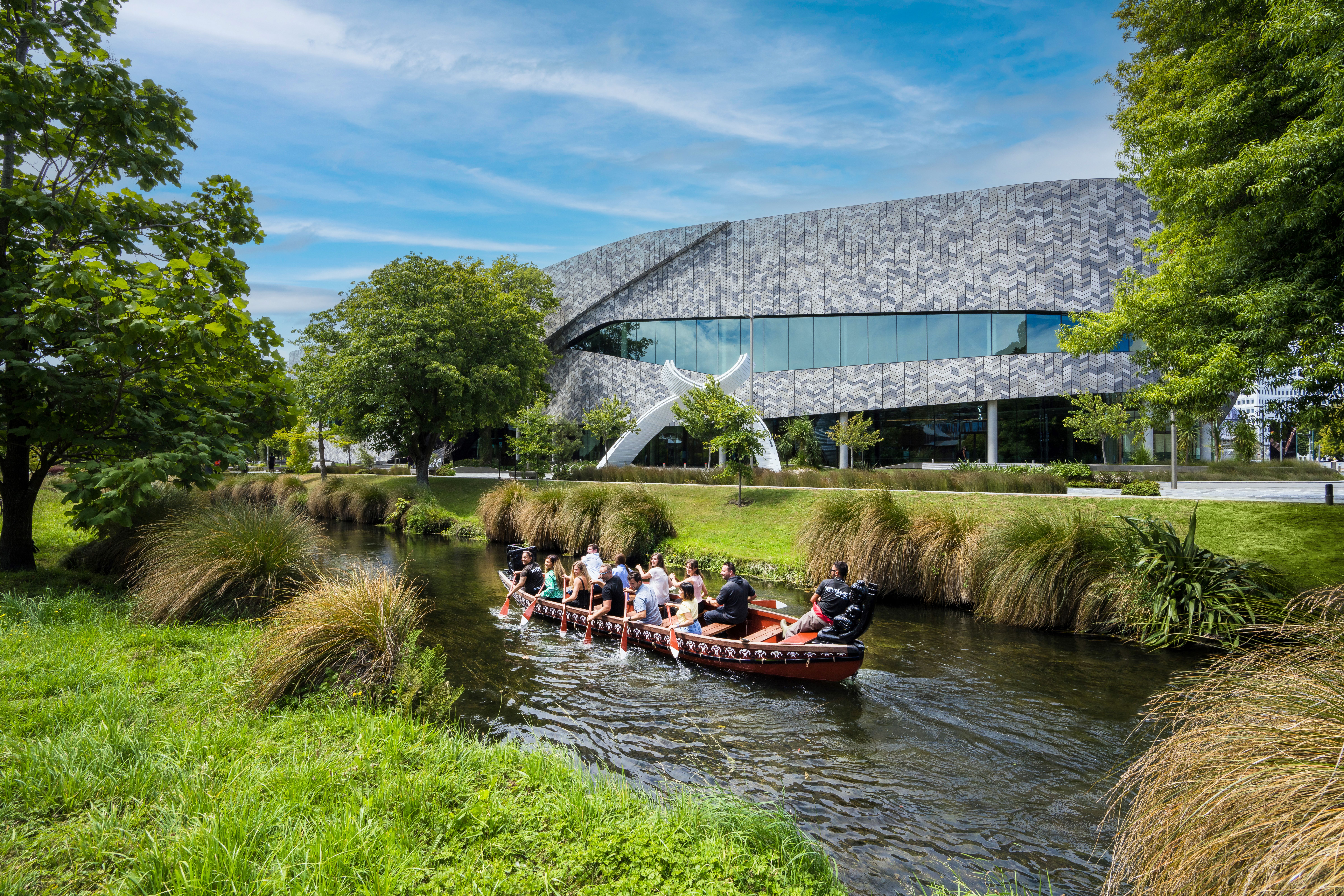Achieving DEI (Diversity, Equity and Inclusion) and ensuring an authentic connection with the local culture are becoming increasingly important to conference organizers.
While Aotearoa New Zealand’s indigenous Māori culture has always held appeal for international visitors, now the Te Ao Māori (Māori worldview) approach is being increasingly embedded in its conference delivery, from engaging Māori speakers to including Māori representation on the Local Organizing Committee to support authentic co-creation.
Recognized as the tangata whenua – or people of this land – Māori have a world view with a strong emphasis on hospitality and respect for the natural environment. They are rapid risers in the wider New Zealand economy, delivering unique Mātauranga Māori (knowledge) in areas from food and fisheries to education and health.
“If a country’s appeal for events could be compared to a gift box, with solutions for the organization’s and delegates’ business, educational and scientific objectives as the contents of the box, and the destination’s tourism and culture as the emotional wrapping paper, then New Zealand is uniquely positioned to include its cultural appeal inside the box as well as on the wrapping paper,” says Martin Sirk, founder of strategic consultancy Sirk Serendipity and recent visitor to New Zealand.
EQUITY OF VOICES
This was evident at the 8th IWG World Conference on Women & Sport held at the Aotea Centre in Tāmaki Makaurau Auckland last November, attracting 1,850 delegates from 90 countries.
Local host WISPA (Women in Sport Aotearoa) arranged an advisory rōpū (group) He Wāhine Toa Kei Te Kokiri, which, alongside Ngati Whātua Ōrākei as host iwi (tribe), guided organizers through the best way to integrate Māori values, content and culture into proceedings: from the opening traditional pōwhiri welcome, to the poi and waiata (song) in the program activities, and the speakers on stage.
Outcomes for Māori were also embedded in the conference, which aimed to advance gender equity and equality in sports.
The event incorporated the first Indigenous-focused initiative of IWG’s 29-year history, with a First Nations Workshop attracting 115 participants from 19 countries. Together they created an Indigenous Statement with 16 actions to promote a safe and equitable space for Indigenous women and girls around the world.
Additionally, WISPA gave 76 scholarships to young leaders and Māori Kōhine (girls) to attend the conference, to empower the next generation.
A WIDER WORLDVIEW
Te Ao Māori is also being recognized as a unique strength for New Zealand at bidding stage.
Tourism New Zealand General Manager New Zealand & Business Events Bjoern Spreitzer says: “The authentic and transformative cultural knowledge and experiences that Aotearoa New Zealand can offer business event attendees really sets us apart as a destination. These events create excellent opportunities for knowledge sharing and positive legacies.”
Auckland has been chosen to host WIPCE, the World Indigenous Peoples’ Conference on Education in November 2025. It is expected to attract some 3,000 representatives to the NZICC to share strategies for culturally grounded education.
The bid was led by Auckland University of Technology’s Office of Māori Advancement and its Faculty of Māori and Indigenous Development with support from Auckland Convention Bureau and Tourism New Zealand.
AUT’s Pro Vice-Chancellor for Māori Advancement, and Chair for WIPCE 2025, Professor Pare Keiha, says: “We look forward to welcoming thousands of our global Indigenous brothers and sisters to the shores of Aotearoa New Zealand, so that we may collectively work to transform the lives of our young people, the world over.”
COMMUNICATION & ADAPTATION
Ōtautahi Christchurch has won the 8th Adaptation Futures Conference in 2025 (AF2025), which is part of the United Nations World Adaptation Science Programme (WASP). The international climate adaptation conference will bring together some 1,500 top scientists, Indigenous scholars and policymakers, at Te Pae Christchurch Convention Centre.
The conference bid was submitted by Te Whare Wānanga o Waitaha | University of Canterbury (UC) academics in partnership with mana whenua (the local tribe) Ngāi Tūāhuriri, with the support of Te Rūnanga o Ngāi Tahu, plus a Scientific Steering Committee drawn from universities across New Zealand, ChristchurchNZ, and Tourism New Zealand.
The bid acknowledged the vital role of inclusive approaches to climate-resilient development, which AF2025 will recognize by drawing on Indigenous and local knowledge and special relationships with mana whenua, to advance a fairer, more liveable, and sustainable future for all.
Christchurch will also host the International Association for Media and Communication Research (IAMCR) in 2024, bringing more than 1000 delegates to Te Pae Christchurch.
The bid was again led by UC and endorsed by mana whenua Ngāi Tūāhuriri, with the support of ChristchurchNZ and Tourism New Zealand.
The conference theme, ‘Whiria te tangata | Weave the people together: Communicative projects of decolonizing, engaging, and listening’, invites reflection on the terms and models appropriate to describe contemporary communication, including the political and moral goals embedded in them.
“Supporting this conference is a unique opportunity for our academics to share their perspectives on Indigenous knowledge with the wider world and perhaps inspire communications research globally,” UC Vice- Chancellor Professor Cheryl de la Rey says.
For more information on bringing your next conference to New Zealand, visit businessevents.newzealand.com
 Waka on Avon and Te Pae Christchurch
Waka on Avon and Te Pae Christchurch